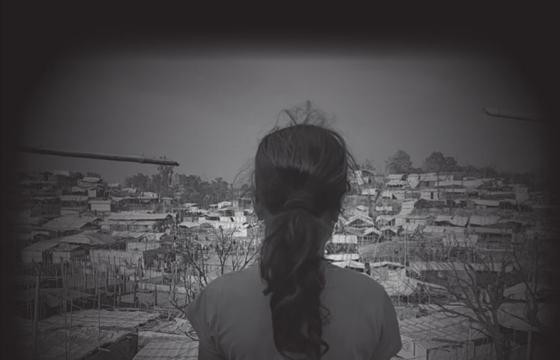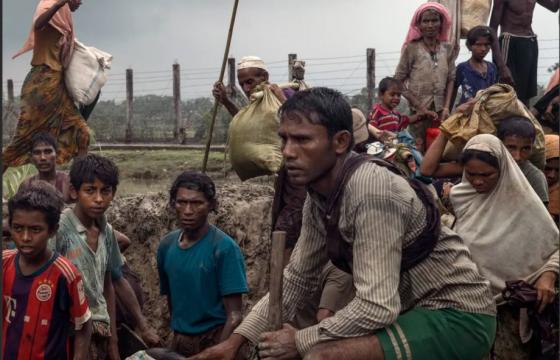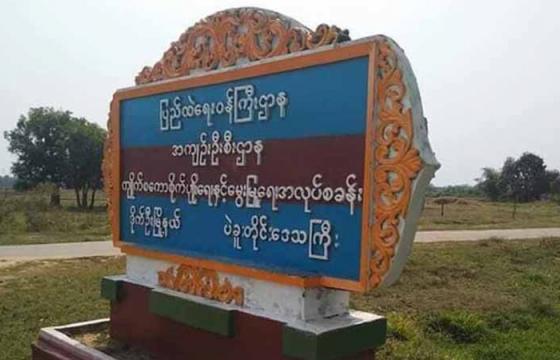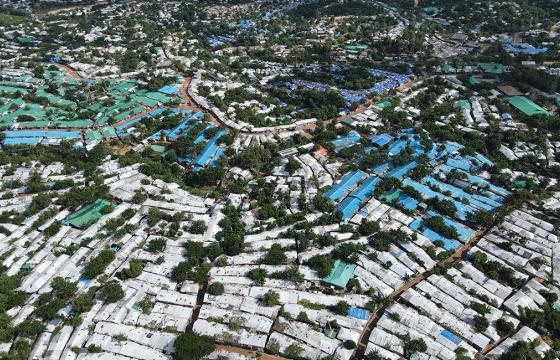Speaking to crowds assembled in the capital for Armed Forces Day on March 27, Commander-in-Chief Senior General Min Aung Hlaing insisted that Muslim Rohingya are illegal immigrants. He also defended a security crackdown that saw tens of thousands from the minority group fleeing the country.
“We have already let the world know that we don’t have Rohingyas in our country. The Bengalis in Rakhine State are not Myanmar citizens and they are just people who come and stay in the country,” Snr Gen Min Aung Hlaing said, according to Reuters. The view is widely held among Bamar in Myanmar, but is contested by Muslim Rohingya who claim to have deep roots in Rakhine State, as well as sporadic recognition of their existence by various government administrations, including a state-sponsored Rohingya language radio program in the 1960s.
More than 1 million Muslim Rohingya live in Rakhine State but are largely denied access to citizenship. According to rights groups, the Rohingya face severe restrictions on their basic rights, with no freedom of movement and limitations on access to healthcare and education. Over 100,000 Rohingya are confined to squalid internally displaced persons camps built as temporary shelters in the wake of 2012 violence, but which continue to be used despite increasingly deteriorating conditions five years later.
Snr Gen Min Aung Hlaing also addressed the recent security crackdown in northern Rakhine State, which has been slammed by the international community, and deemed by the UN as possibly indicative of crimes against humanity.
“We have a duty to do what we should do, according to law, and we also have a duty to protect our sovereignty when it is harmed by political, religious and racial problems in the country,” he said.
The recent clampdown began on October 9 in response to deadly pre-dawn attacks on three border guard posts. The assaults were pinned on a Rohingya insurgent group, and led to months of “clearance operations” where security forces raided the area in search of suspects and the guns seized by the attackers. By some estimates, around 1,000 people may have died in the operation, which has also triggered reports of sexual violence, arson and arbitrary arrest and detention. The Tatmadaw and the government have repeatedly denied allegations of wrongdoing.
Three days before the commander-in-chief’s speech, the UN Human Rights Council voted in favor of sending an international probe to investigate rights violations in Myanmar, especially in Rakhine State.
"The terrorist attacks which took place in October 2016 resulted in political interferences," Snr Gen Min Aung Hlaing said at the Armed Forces Day event.
The government has rejected the UN’s call for an international investigation, and said it would not cooperate without any such team. According to a statement by the foreign ministry, which is headed by Daw Aung San Suu Kyi, any international fact-finding mission "would do more to inflame, rather than resolve, the issues at this time".
Edited by Laignee Barron







